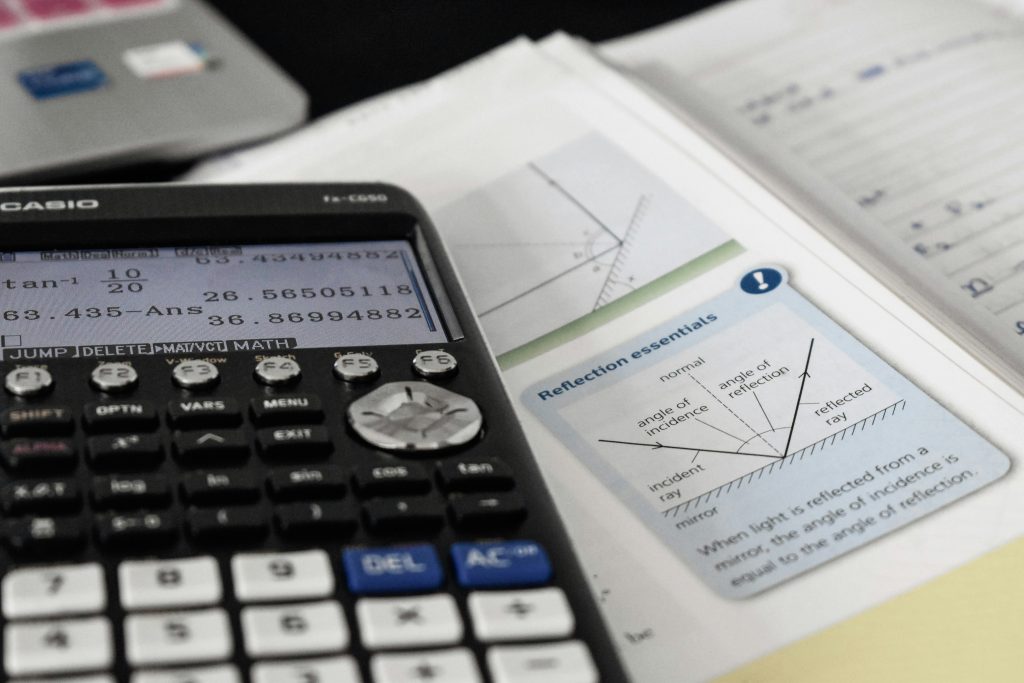Simple Ways to Make Math a Part of Daily Conversations

Introduction:
Do you often find yourself wondering how to help your child improve their math skills? As a parent, it can be challenging to find effective methods that make learning math enjoyable. The good news is that you don’t have to rely solely on textbooks and worksheets. Incorporating math into everyday conversations is an effective way to build your child’s math skills and boost their confidence.
Math in Daily Life:
Mathematics is not just limited to classrooms and textbooks; it is all around us. From cooking and baking to shopping and setting the table, there are numerous opportunities throughout the day to introduce math concepts naturally. By making math a part of daily conversations, you can help your child develop a deeper understanding of mathematical concepts and improve their problem-solving abilities.
Abacus Training: Enhancing Math Skills:
One method that has proven effective in developing strong math skills is abacus training. The abacus is an ancient tool that helps children visualize numbers and perform calculations mentally. It provides a hands-on approach to learning math and encourages children to think critically and analytically.
Abacus training incorporates fun learning techniques and engages children through interactive software, lesson plans, and materials designed specifically for their age group. The curriculum is divided into structured levels, allowing children to progress at their own pace. Studies have shown that children who receive abacus training perform significantly better in math and reading at school, often surpassing their peers by several years within just a couple of years of joining the program.
Now that we understand the importance of incorporating math into daily conversations and the benefits of abacus training, let’s explore some simple ways to make math a part of your child’s everyday life:
At Home:
Setting the Table:
Ask questions such as “How many plates do we need if everyone in the family is eating?” or “If we have 5 people and only 3 forks, how many more do we need?”
Encourage your child to think critically and problem-solve.
Cooking and Baking:
Discuss measurements and quantities while preparing food.
For example, “We need 2 cups of flour. If we already put in 1 cup, how many more do we need?”
Let your child measure ingredients, reinforcing their understanding of fractions and ratios.
Tidying Up:
Count toys, books, or clothes as you put them away.
“Let’s count how many cars you have before we put them in the box.”
Reinforce counting and number recognition skills.
Grocery Shopping:
Counting and Estimating:
Count items as you add them to the cart.
“How many apples are in this bag?” or “Can you estimate how many bananas we have?”
Develop counting skills and introduce the concept of estimation.
Comparing Prices and Deals:
Ask questions like “Which is the better deal: a 500ml bottle of juice for $2.50 or a 1L bottle for $4.00?”
Engage your child in critical thinking and comparison skills.
Calculating Totals:
While waiting in line, ask your child to mentally add up the prices of items in the cart.
“If our items cost $1.59, $3.99, and $2.50, how much do we need to pay?”
Develop mental math skills and reinforce addition.
Daily Routines and Play:
Measuring and Timing:
Measure the height of a plant, the length of a table, or time how long it takes to do a task.
“Let’s see how tall you’ve grown this month!” or “How many seconds can you stand on one foot?”
Introduce measurement and time concepts.
Games and Puzzles:
Use board games, building blocks, or card games to discuss numbers, patterns, and strategies.
“How many spaces do you need to win?” or “Can you make a pattern with these blocks?”
Develop problem-solving skills and critical thinking.
Conversation Starters and Questions:
“How many more…?”
“How many more cookies do we need so everyone gets two?”
Strengthen subtraction skills and encourage logical thinking.
“What’s the difference between…?”
“What’s the difference in price between these two cereals?”
Develop comparison skills and introduce the concept of finding differences.
“Can you find a pattern?”
“Do you see a pattern in the tiles on the floor?”
Encourage observation skills and pattern recognition.
Tips for Effective Math Conversations:
Ask Open-Ended Questions:
Encourage children to explain their thinking.
“How did you figure that out?” or “Why do you think that is the answer?”
Foster critical thinking and reasoning skills.
Make It Routine:
Integrate math talk into daily activities.
Aim for brief, regular conversations rather than formal lessons.
Keep the learning process natural and enjoyable.
Praise Effort and Reasoning:
Focus on the process and problem-solving rather than just correct answers.
Encourage your child’s effort and celebrate their reasoning skills.
Why It Matters:
Research shows that children exposed to regular math talk at home develop stronger number sense and are better prepared for math learning in school. These everyday interactions make math meaningful and show its relevance in the real world. By incorporating math into daily conversations, you are not only improving your child’s math skills but also helping them develop critical thinking abilities and problem-solving skills that are essential for success in their academic and professional lives.
Ways to Make Math a Part of Daily Conversations:
|
Daily Activity |
How to Include Math |
Sample Conversation Starter |
|---|---|---|
|
Setting the Table |
Count plates, forks, and napkins needed |
“We have 4 people. How many plates do we need?” |
|
Cooking & Baking |
Measure ingredients, double or halve recipes |
“If we double the recipe, how much sugar will we need?” |
|
Grocery Shopping |
Compare prices, count items, estimate totals |
“Which is cheaper per piece: this pack or that one?” |
|
Cleaning Up |
Count and sort toys, books, or clothes |
“How many blocks are red? How many are blue?” |
|
Traveling/Commuting |
Calculate distance, time, or speed |
“If we drive 10 km in 20 minutes, what’s our speed?” |
|
Playing Games |
Use board games or cards to count, add, and strategize |
“How many spaces do you need to win?” |
|
Measuring & Timing |
Measure height, time activities, compare lengths |
“How tall is this plant? Is it taller than last week?” |
|
Spotting Patterns |
Look for patterns in tiles, fabrics, or nature |
“Can you find a pattern in the floor tiles?” |
|
Shopping at Home |
Add up prices of items, make change, compare quantities |
“If you buy two toys for $5 each, how much will it cost?” |
|
Everyday Estimation |
Guess and check quantities (beans in a jar, steps to the door, etc.) |
“How many steps do you think it takes to reach your bedroom?” |
Summing Up:
Incorporating math into daily conversations is a simple yet effective way to enhance your child’s math skills. By involving them in activities such as setting the table, cooking, shopping, and daily routines, you can make math a natural part of their everyday life. Additionally, consider enrolling your child in abacus training programs like SIP Abacus, which have a proven track record of improving math skills and overall cognitive development in children.
SIP Abacus offers world-class skill development programs that aim to unlock the mental potential of children through fun learning methodologies. Their programs use the abacus tool and visualization techniques to teach children mental math skills from ages 6-12. With small class sizes and interactive lessons, SIP Abacus provides a conducive learning environment for your child’s mathematical growth. Studies have shown that children who complete the SIP Abacus program perform significantly better in math and reading at school, often 3-4 years ahead of their peers within 2 years of joining.
So why not start today? Embrace the power of incorporating math into daily conversations and give your child the advantage they deserve. Together, let’s unlock their mathematical potential and set them on a path to success.



